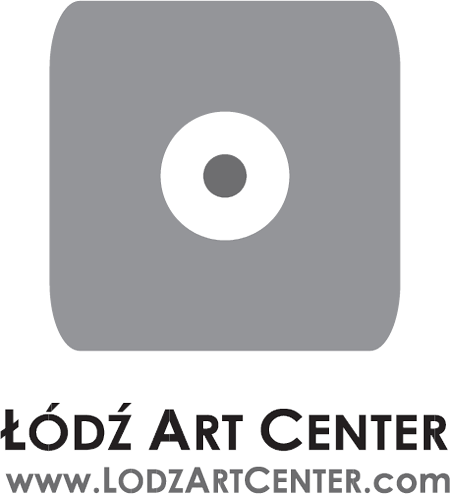Future Scenarios is an exploration of the themes of vulnerability to, and responsibility for Climate Change, and the role that narrative plays in shaping our future.
Future Scenarios is an exploration of the themes of vulnerability to, and responsibility for climate change, and the role that narrative plays in shaping our future.
Through collaboration with leading climate change scientists, researchers and policy makers in the Global South and the UK Dobrowolska and Ormond-Skeaping have learnt how the narrative of vulnerability that once surrounded those nations most vulnerable to climate change has developed into a narrative of resilience and adaptation.
The countries once thought of as helpless in the face of climate change are now emerging as leaders in the development of mitigation and adaptation strategies, the use of indigenous resilience and adaptation knowledge, research into loss and damage, knowledge sharing, renewables and are the closest to decarbonising their economies, even though as a group they have contributed the least to total global carbon emissions. While conversely the developed nations that are principally responsible for climate change and have the greatest technological and financial resources to tackle it seem to be stuck in a state of political apathy and are making little progress towards mitigation or adaptation.
By foregrounding this new narrative of resilience and adaptation, Dobrowolska and Ormond-Skeaping intend to reveal how this story opens up a dialogue about a still yet-to-be determined future and how it rejects the fatalistic narrative about vulnerability that compounds victimhood. Working with scenarios thinking Dobrowolska and Ormond-Skeaping have pursued indexical representations of current climate change phenomena with the intention of suggesting a palpable imagining of difficult and improving climate change future scenarios. In locations that are vulnerable to and historically responsible for climate change they have investigated scenarios of climate induced migration, intensified natural disasters, sea level rise, energy futures, conflict, heat and water stress and food security.
Describing climate change as what Timothy Morton has dubbed a “Hyperobject” * Future Scenarios attempts to displace climate change, skew the responsibility vulnerability divide and reveal the pervasive power relationships that are inherent to climate change. In this way Dobrowolska and Ormond-Skeaping draw attention to how we are all responsible for and all vulnerable to climate change, of course not equally responsible, but nevertheless how we all have a carbon footprint and therefore we all have a role to play in tackling climate change (Dr. Saleemul Huq).
Operating as a collaborative cross disciplinary investigation, Future Scenarios considers how we may represent climate change through photography and artist film and how we may decolonize nature (T.J. Demos). Ultimately Dobrowolska and Ormond-Skeaping believe that to decolonise social and natural environments and begin to envision habitable futures we need to look afresh, and perhaps unlearn old ways of seeing, in order to allow new narratives and scenarios to arise.
Future Scenarios has been produced in Lao PDR, Bangladesh, Nepal, The United Kingdom and Uganda in 2017-8 following Dobrowolska and Ormond-Skeaping’s participation in the yearlong Culture and Climate Change: Future Scenarios Networked Residency in 2016-7 which was supported by Culture and Climate Change, the Jerwood Charitable Foundation, The University of Sheffield, The Open University, The Ashden Trust. The residency explored the idea of artists working as climate change researchers by connecting artists with a network of Climate Change researchers, NGO’s, policy makers and institutions such as: The British Antarctic Survey, The Scott Polar Museum, The Tyndall Centre, The International Centre for Climate Change and Development in Bangladesh (ICCCAD), The IIED, The UNHCR and Jesuit Refugee Services.
*Hyperobjets refer to things that are massively distributed in time and space relative to humans.
Bio:
Lena Dobrowolska & Teo Ormond-Skeaping are an artist collaboration working with a combination of documentary photography, documentary film, installation, interactive documentary and research in order to produce multifaceted projects that are intended to reflect the complexities of today’s world. Since 2012 they have been working on projects relating to Climate Change and the Anthropocene. Their ongoing work focuses on the relationship between climate change, development, environmental degradation, human rights and geopolitics through which they consider how documentary film and photography inherently reveal the presence of pervasive power relationships , power structures and the mechanism of othering within the political landscape of our globalised society. Through a study of the landscape, the portrait and the still life they consider the shifting cultural meaning of nature, how this is changed by the definition of the Anthropocene and how we may decolonize nature.
They have worked extensively in climate change stress zones producing work in China, Nepal, Bangladesh, Uganda and Laos PDR. Their work has been exhibited internationally including exhibitions at Krakow Photomonth (2016), Fotofestiwal (2014), Fotograf festival (2014), Mpm Gallery (2015) and The Grey House Foundation (2016).
Exhibition opening: 19:00, 21.06.2018
Place: Art_Inkubator / Building B2 / Galeria Fabryki Sztuki / Tymienieckiego 3 Street


























































